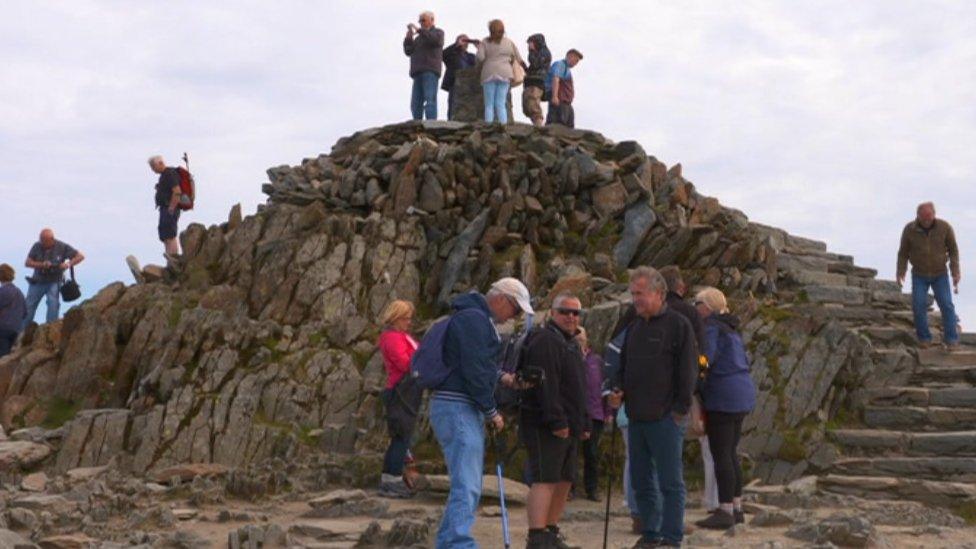Plastic packaging levy 'could cut Welsh beach litter'
- Published
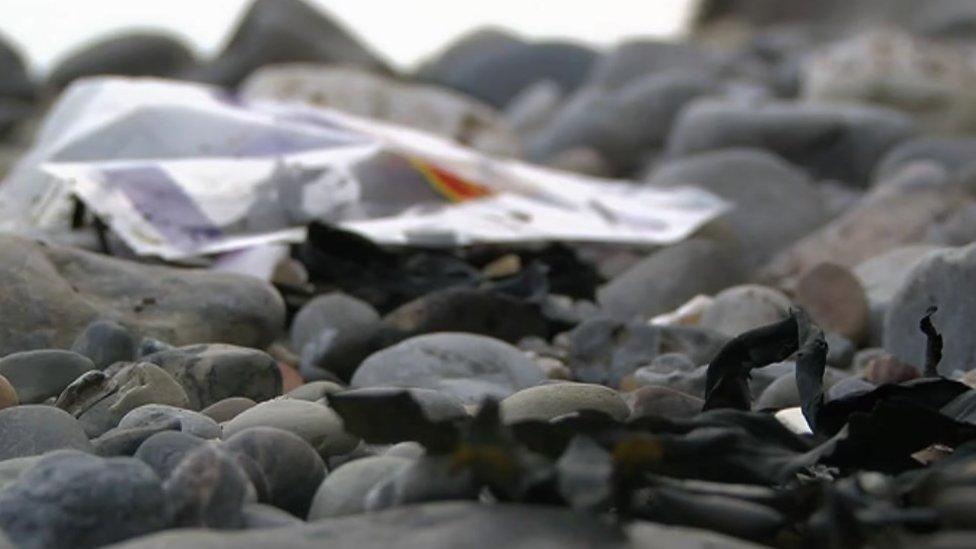
Calls for a plastic food packaging levy to help reduce litter have been made by an environmental group.
The Marine Conservation Society in Wales (MCS) said plastic left on beaches has a detrimental effect on tourism and wildlife.
During June, the MCS set the "plastic challenge", asking people to resist buying foods wrapped in plastic.
The Welsh Government said it was evaluating its waste strategy to best benefit the environment.
Gill Bell, of the MCS, said: "This is my third year now at the plastic challenge - it's not easy - I can't buy it if it's got any plastic packaging.
"Anything from pasta, to cheese, to toilet roll - but it shows you just how much we buy and just how much we have to get rid of.
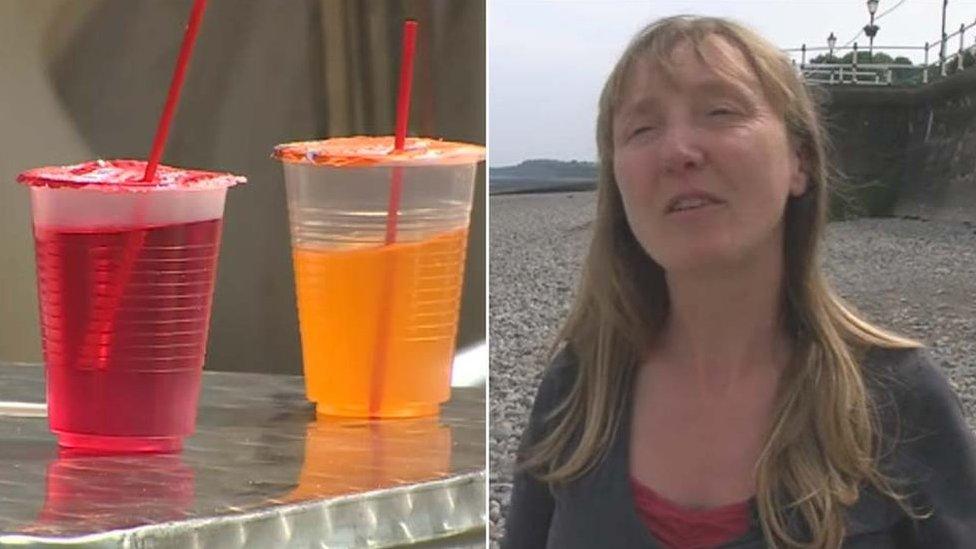
Gill Bell, of the Marine Conservation Society in Wales, believes a plastic levy could have a similar effect as the carrier bag charge
"Even though you might not see a lot on beaches because they've been cleaned, small bits of plastic break down into microscopic dust and it is eaten by those further down the food chain."
She said some progress had been made in reducing single-use plastic, such as at Anglesey Sea Zoo, which has removed all plastic from its food outlets.
People in Barry, Vale of Glamorgan, have also lobbied local authorities to remove polystyrene packaging from fast food restaurants.
'Behaviour change'
But she argued more measures were needed because, even when plastic is put in the bin, it is not always easy to recycle.
Ms Bell said the MCS had asked the Welsh Government to look at a levy on plastic containers to reduce their use and encourage packagers to move to cardboard.
"It's about behaviour change," she said. "We saw it with the plastic bag charge, when you put a value on something people pay more attention."
A Welsh Government spokesperson said: "We are currently evaluating our Waste Strategy Towards Zero Waste to make sure resources are managed in Wales to produce benefits not only for the environment, but also for our economy and social well-being."
- Published27 March 2014
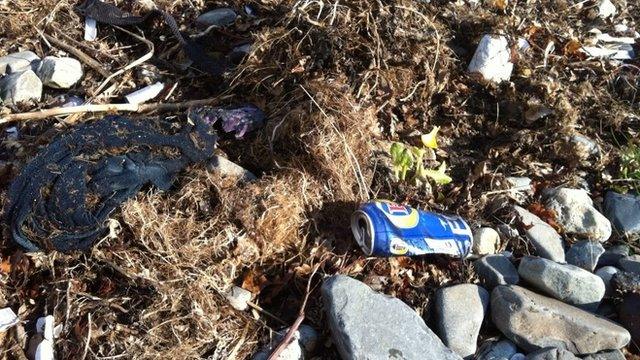
- Published23 March 2016
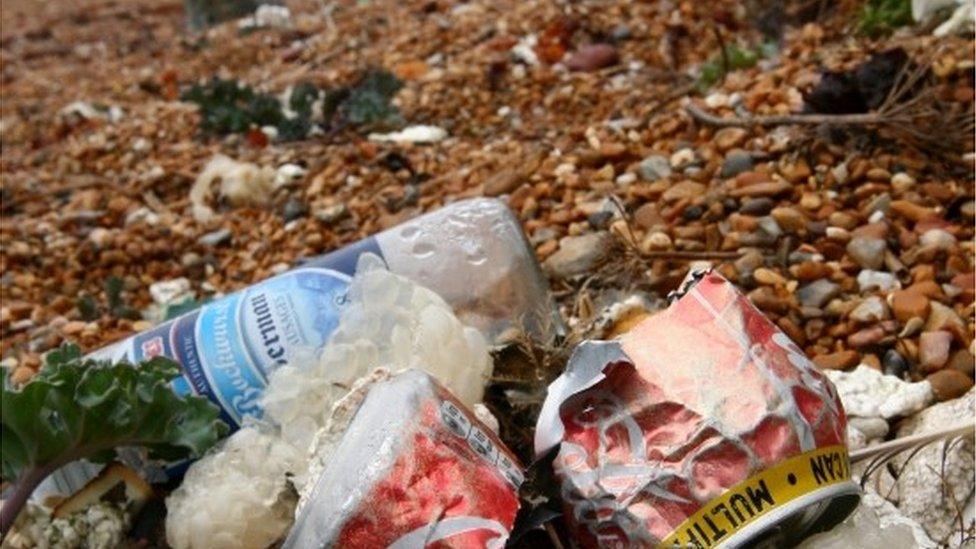
- Published19 November 2015
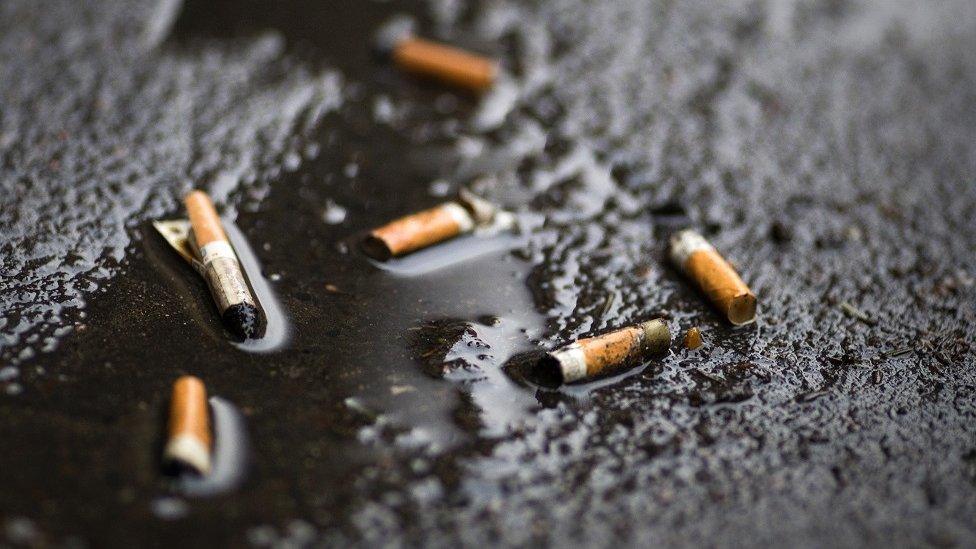
- Published18 November 2015
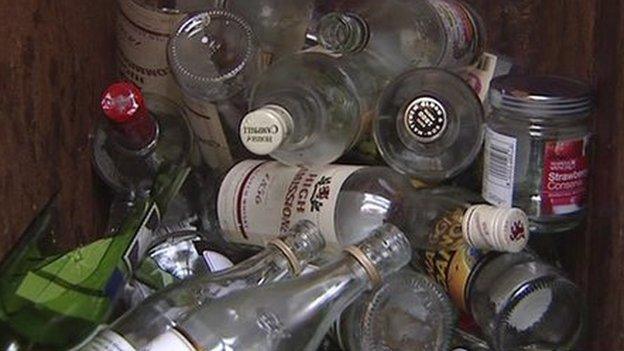
- Published9 November 2015
